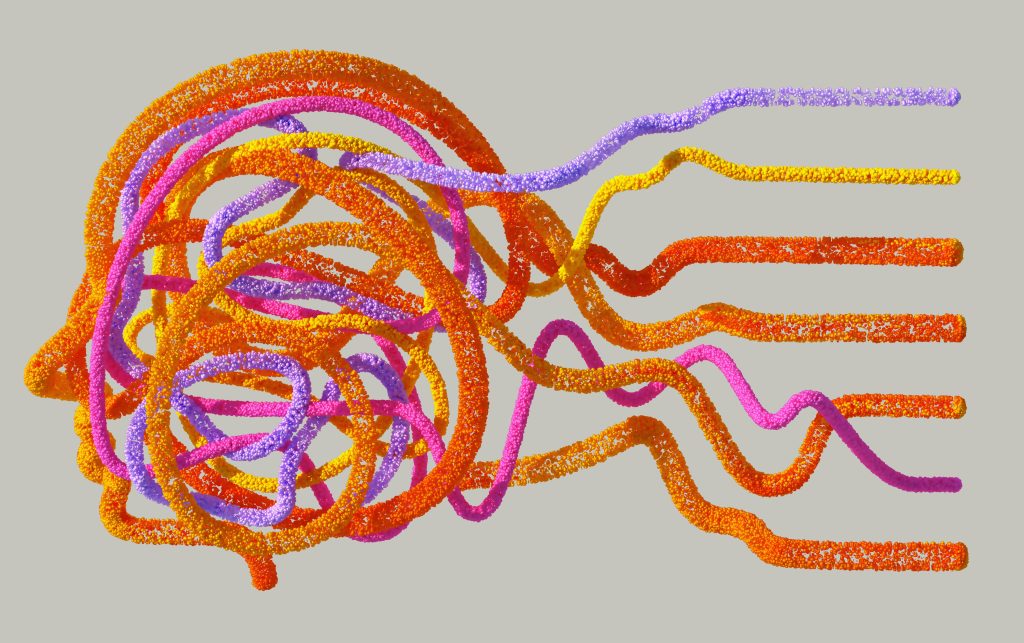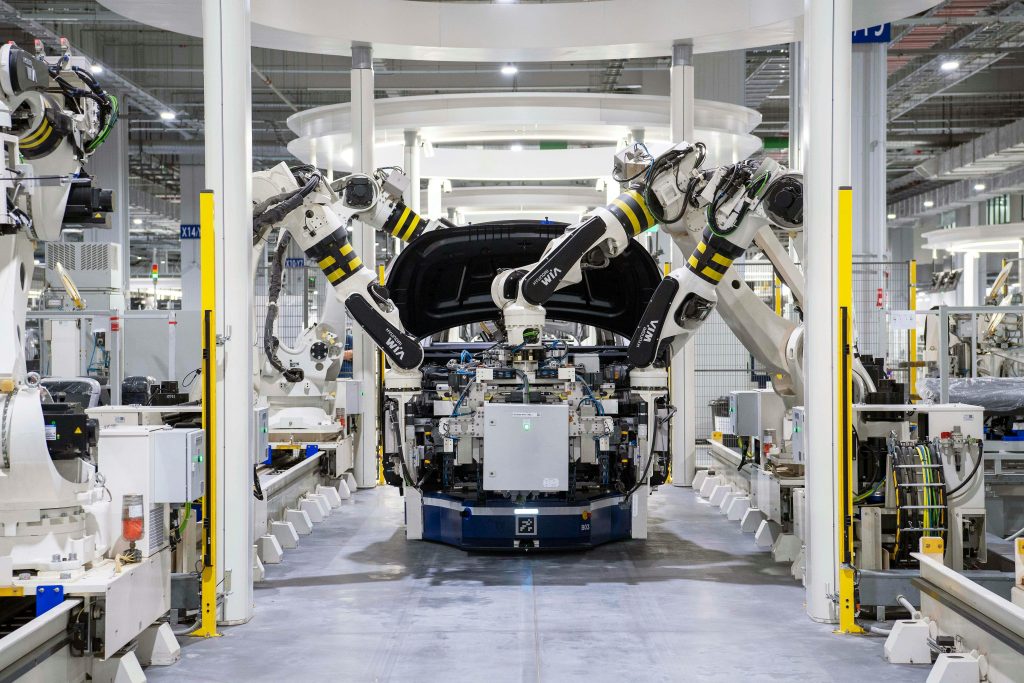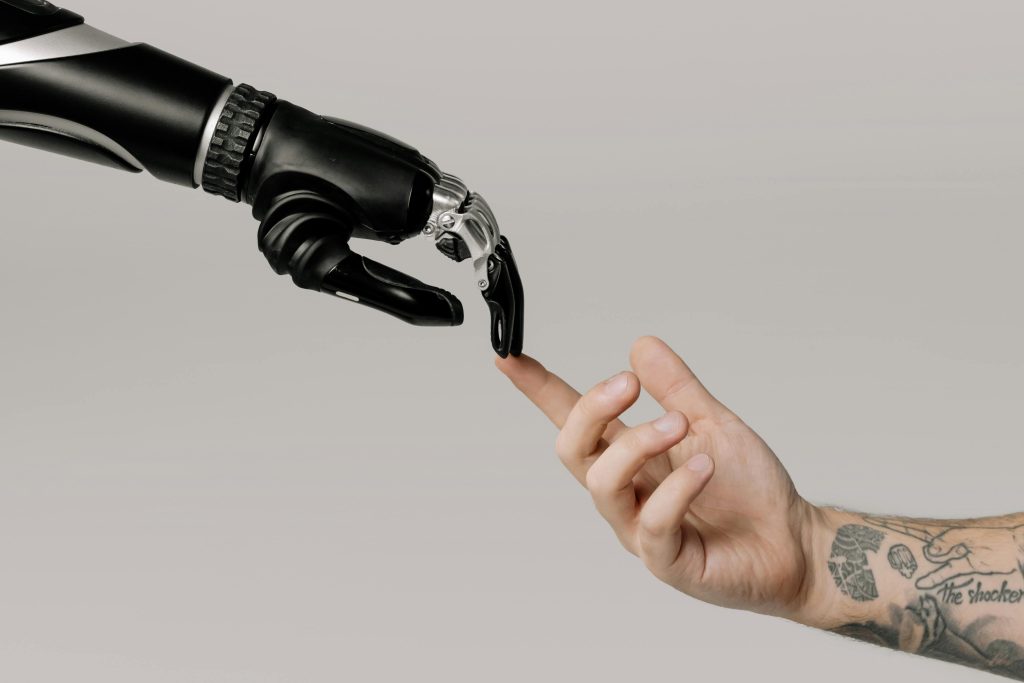Introduction
Artificial Intelligence has moved from futuristic buzzword to everyday reality. In 2025, AI is no longer just powering big tech or research labs—it’s embedded in the way we live, work, travel, and interact. From personalised healthcare and smart homes to AI-enhanced creativity and decision-making, the technology is reshaping modern life at every level.
At Growly, we explore the innovations transforming our world. In this article, we examine how AI is changing the way we live in 2025—with practical examples, emerging trends, and the real-world benefits (and challenges) of artificial intelligence in everyday life.

1. AI in the Home: Smarter Living, Every Day
Today’s homes are more than connected—they’re intelligent.
What’s changing:
- AI-driven home assistants adjust lighting, temperature, and appliances based on your preferences and schedule.
- Predictive algorithms automate grocery orders based on past usage.
- Smart fridges suggest recipes using what’s already inside.
- AI security systems recognise faces and respond contextually to threats or false alarms.
AI creates homes that are proactive, personalised, and energy-efficient.
2. AI-Powered Healthcare: Personalised and Preventative
Healthcare in 2025 is faster, smarter, and increasingly predictive rather than reactive.
Key advances:
- AI diagnostics use image recognition to detect early signs of disease (e.g., skin cancer, retina scans).
- Wearable health devices analyse sleep, heart rate, and blood oxygen to alert users—and doctors—in real time.
- Virtual health assistants remind patients to take medication or book appointments based on behavioural data.
AI empowers patients and clinicians with real-time insights, leading to faster interventions and better outcomes.
3. AI and Work: A Redefined Workforce
Work is no longer about just completing tasks—it’s about collaborating with intelligent systems.

Workplace transformations:
- AI tools generate reports, summarise meetings, and even write code.
- Personal productivity assistants manage schedules, automate emails, and filter distractions.
- AI-enhanced recruitment tools match candidates to jobs based on skills, performance, and culture fit.
Rather than replacing people, AI is becoming a co-pilot, helping workers be more strategic and efficient.
4. AI in Mobility and Transport
Getting from A to B is smarter, safer, and more sustainable.
Transportation trends in 2025:
- Autonomous vehicles are being used for deliveries, ride-sharing, and private commuting in select cities.
- AI traffic management systems reduce congestion by adapting signals in real time.
- Electric vehicles optimise routes for battery efficiency using AI-based navigation.
- Public transport apps powered by AI suggest multimodal routes based on traffic, weather, and historical patterns.
AI is making transport safer, faster, and cleaner for both individuals and cities.
5. AI in Education and Personal Learning
AI is transforming how people learn—not just what they learn.
Innovations in 2025:
- Adaptive learning platforms adjust lessons based on student progress and attention levels.
- AI tutors provide instant feedback, explanations, and test prep in natural language.
- Institutions use AI to predict student performance and personalise support.
Education in 2025 is more accessible, engaging, and tailored to individual learning styles—thanks to AI.
6. AI and Creativity: Collaborating with Machines
AI isn’t just technical—it’s becoming a creative partner.

Real-world applications:
- Writers use AI to brainstorm, co-author, and refine text.
- Musicians generate beats or harmonies using AI-enhanced tools.
- Designers use generative AI to explore rapid iterations of product ideas.
- Filmmakers create storyboards and scripts faster with natural language AI tools.
In 2025, creators don’t fear AI—they collaborate with it to unlock new levels of expression.
7. AI in Finance and Personal Planning
Financial decision-making is smarter and more accessible with AI.
Everyday use:
- AI budgeting apps categorise spending and suggest smart adjustments in real time.
- Investment platforms use AI to build custom portfolios based on goals and risk tolerance.
- Fraud detection systems monitor accounts 24/7 with precision, reducing identity theft and financial fraud.
AI turns complex data into simple, actionable financial advice for everyday users.
8. AI and Ethics: The Double-Edged Sword
With power comes responsibility. As AI advances, so do questions about fairness, bias, and control.

Emerging concerns in 2025:
- Algorithms must be monitored for bias in hiring, lending, and policing.
- Data privacy is a major focus, with stricter regulations and ethical AI frameworks.
- Users demand transparency: Who made this decision—human or machine?
The future of AI depends not only on its power, but on our ability to govern it wisely.
Conclusion
AI is no longer science fiction. In 2025, it’s part of our homes, our health, our work, and even our creativity. While challenges remain—especially around ethics and trust—the benefits are undeniable. AI is helping people live smarter, safer, and more fulfilling lives.
At Growly, we believe understanding technology is the first step to using it well. As AI continues to evolve, staying informed and engaged will be key to thriving in this intelligent, interconnected future.








